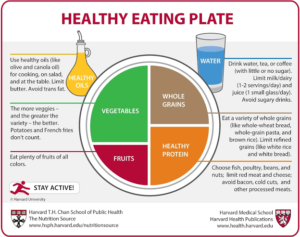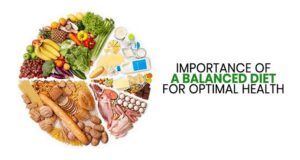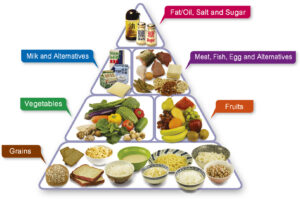5 Health & Diet Tips:
Stay hydrated by drinking plenty of water throughout the day. Incorporate more fruits and vegetables into your meals for a nutritious boost. Get regular exercise to improve your overall fitness and well-being. Remember to consult a healthcare professional before making any significant changes to your diet or exercise routine.Incorporate these
Health & Diet Tips for a balanced lifestyle:

Stay hydrated by drinking plenty of water throughout the day. Include more fruits and vegetables into your meals for a nutritious boost. Get regular exercise to improve your overall fitness and well-being. Remember to consult a healthcare professional before making any significant changes to your diet or exercise routine.
For YouTube Tips Step by Step Follow this Link👈
5 Health & Diet Tips | Help you lose or gain weight? Why?
Are you experiencing difficulties in reaching your ideal weight? It can be a daunting task to navigate the world of nutrition and diet, whether it is your goal to lose weight or gain muscle. Our team recognizes the difficulty of finding trustworthy, practical advice amidst numerous trendy diets and conflicting information.
We have created a comprehensive guide that provides practical tips for losing weight and gaining momentum.
Making the necessary changes to your body is not a simple task, as we don’t want to try everything you can with one hand and every day. We’re going to show you five steps to help you reach your weight loss goals.
We offer practical tips that can help you understand your body shape, optimize your caloric intake, choose the right foods to eat, create a healthy meal plan and make lifestyle changes.
Let’s begin your transformation journey together!
Understanding Your Current Body Composition. Calculate your BMI accurately. We must first establish a clear understanding of our physical makeup before embarking on weight management initiatives. Why? BMI is the first indicator of our physical well-being, serving as a baseline measure for weight.
By using this method, we can determine our BMI.
What is the metric equivalent? (kg) Metric value for Weight = Height2.
The imperial unit is a weight that is equal to (lbs) 703 and 2 inches in height.
Here is a quick reference table for BMI classifications: »
BMI Range. Classification.
Below 18.5.
Underweight. 18.5.
Normal Weight. 25.0.
Overweight.
30. 0 Obese.
Determine your body fat percentage. Body fat percentage is a more accurate way to measure our body composition than BMI, which provides broader information. There are several means of determining this: 1.
Bioelectrical Impedance Analysis (BIA)
Available in many modern scales.
Provides quick results.
Accuracy is influenced by the level of dehydration.
Skinfold Calipers.
More accurate than BIA.
Requires proper technique.
Is most effective when measured by a professional.
DEXA Scan.
Most accurate method.
Provides detailed body composition analysis.
Typically available at specialized facilities.
The percentage of body fat that is considered health & diet varies by gender:
Gender.
Athletes.
Fitness.
Acceptable.
Obese.
Men. 6-13% 14-17% 18-24% 25%+.
Women. 14-20% 21-24% 25-31% 32%+.
Set realistic weight goals. Our BMI and body fat percentage can be used to set realistic weight goals. Why? Establishing SMART goals is essential.: 1.
Specific.
Define exact weight targets.
Assess our inclination towards losing or winning.
Measurable.
Track progress weekly.
Monitor body measurements.
Record energy levels.
Achievable.
To lose weight, aim to reduce by 0.5-1kg (1-2lbs) every week.
For a week, the ideal weight gain is between 0.25-0.5kg (0.5-1lb).
Realistic.
Consider our lifestyle.
Account for our genetic predisposition.
Consider our current level of fitness.
Time-bound.
Set short-term milestones (4-6 weeks)
Establish long-term targets (3-6 months)
To set our goals for health & diet, we need to consider several crucial aspects:
Current physical activity level.
Daily schedule and commitments.
Previous weight management attempts.
Medical conditions or limitations.
Available resources and support systems.
It is suggested to document progress in a journal that includes:
Weekly weigh-ins. Body measurements.
Progress photos.
Energy levels.
Sleep quality.
Mood changes.
Knowing these basic components of our body sets us up for a successful weight control program. By utilizing this information, we can make more sustainable choices when it comes to our health & diet and exercise habits.
To achieve the best results of Health & Diet, we should review our body composition every 4-6 weeks, making adjustments to our goals as needed, depending on progress and changing circumstances.
Regular scrutiny keeps us on the right path while also maintaining reasonable expectations.'”
With a comprehensive understanding of our physical makeup and fitness goals, we can now make adjustments to our eating habits and achieve weight loss.
Optimizing Your Daily Caloric Intake:
Having established our physical makeup, it’s time to tackle the essential topic of managing calories intake. Whether we achieve weight gain or loss is dependent on our understanding of this fundamental concept.
Calculate Maintenance Calories:
We must first determine the amount of calories needed each day to maintain our health & Diet, known as maintenance calorics. Here is our proven formula:
Activity Level.
Multiplier.
Example (150 lb person)
Sedentary.
Weight x 13-14.
1,950-2,100 calories.
Moderately Active.
Weight x 14-16.
2,100-2,400 calories.
Very Active.
Weight x 16-18.
2,400-2,700 calories.
The main drivers of our maintenance calories:
Base metabolic rate (BMR)
Daily physical activity.
Exercise routine.
Age and gender.
Current muscle mass.
Adjust Calories for Weight Loss/Gain. Once we have determined our maintenance calories, they can be adjusted to meet our objectives:
For Weight Loss:
Defeat 500-750 calories/day.?T
his results in a weekly weight loss of 1-1.5 pounds.
Keep your caloric intake to 1,200 for women and 1,500 for men.—and.
For Weight Gain:
Add 300-500 calories above maintenance.
Try to gain 0.5-1 pound of weight each week.
Focusing on proper nutrition to achieve lean mass gain.?
Track Macronutrients Effectively.
We need to ensure that we distribute our calories across all macronutrients:
Recommended macro distribution:
Protein:
Weight loss can be as low as 1.2-1.6g per pound of body weight.?
The rate of weight gain per pound of body is typically between 0.8-1.2g.
Element required for muscle maintenance and advancement.
Carbohydrates:
The amount of calories consumed during weight loss is 40-45% of the total calorie count.
Adding 45-60% of calories to the daily intake results in weight gain.
Primary energy source for activities.
Fats:

The total calories consumed will account for 20-25% of the weight loss.
The total calories consumed account for 25-30% of weight gain.
Crucial for hormone production.
Time Meals Strategically.
The timing of our meals is crucial for optimal results: 1.
Pre-workout nutrition:
Consume 2-3 hours before exercise.
Include complex carbs and moderate protein.?
Avoid consuming excessive amounts of fat to prevent digestive problems.
Post workout nutrition:
It is recommended to eat within 30-60 minutes of exercising.
Concentrate on rapidly digesting proteins and carbohydrates.
The recommended amount of protein to maintain good health is 20-30g.
Daily meal frequency:
Weight Loss: 3-4 structured meals.
Small portions every 3-4 hours.
Consider intermittent fasting.
To Gain Weight:

4-6 meals daily.
Larger portions every 2-3 hours.
Include calorie-dense foods.
Tracking tools we recommend:
Mobile apps for calorie counting.
Food scales for accurate portions.
Weekly progress photos.
Regular body measurements.
Food diary for accountability.
Take into account how much we consume:
Weekly progress.
Energy levels.
Workout performance.
Sleep quality.
Hunger signals.
Conclusion for Health & Diet:
Incorporating healthy habits such as staying hydrated, eating more fruits and vegetables, and engaging in regular exercise can significantly enhance your overall well-being and help you achieve your weight management goals. By understanding your body composition and adjusting your caloric intake accordingly, you can make informed choices that lead to a balanced and healthier lifestyle.


Very informative
Great job 👍
Thank you so much 😍 Keep Supporting 🙏
Very informative blogs
Thank you so much!!! Keep Supporting! let us know about more improvements to get more engagements.😍
Impressive